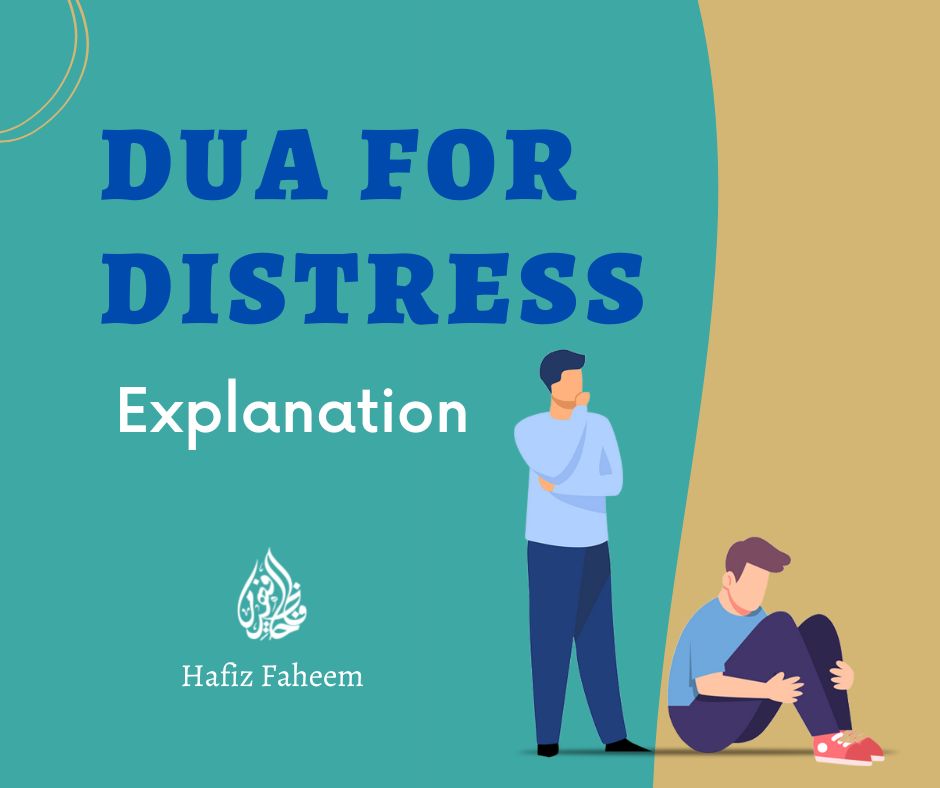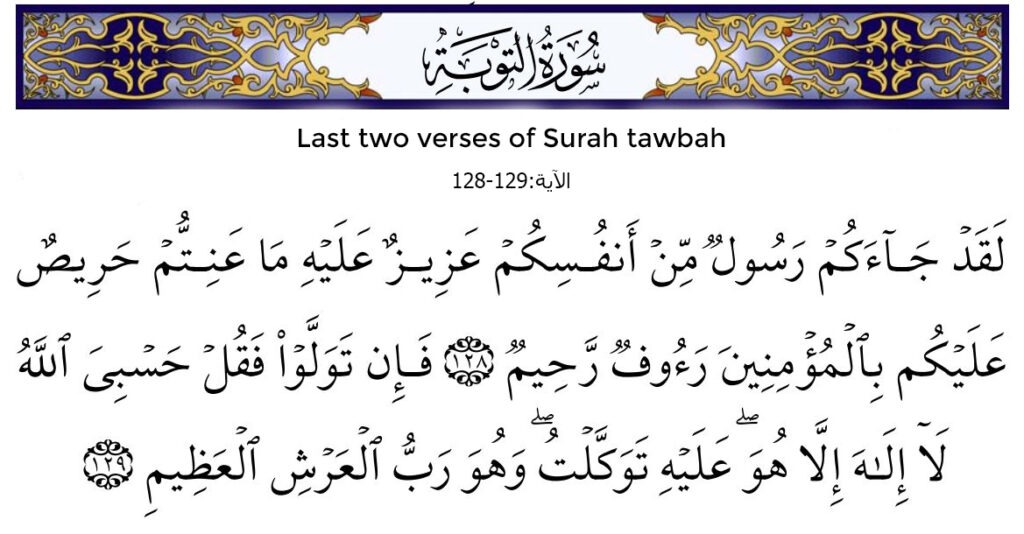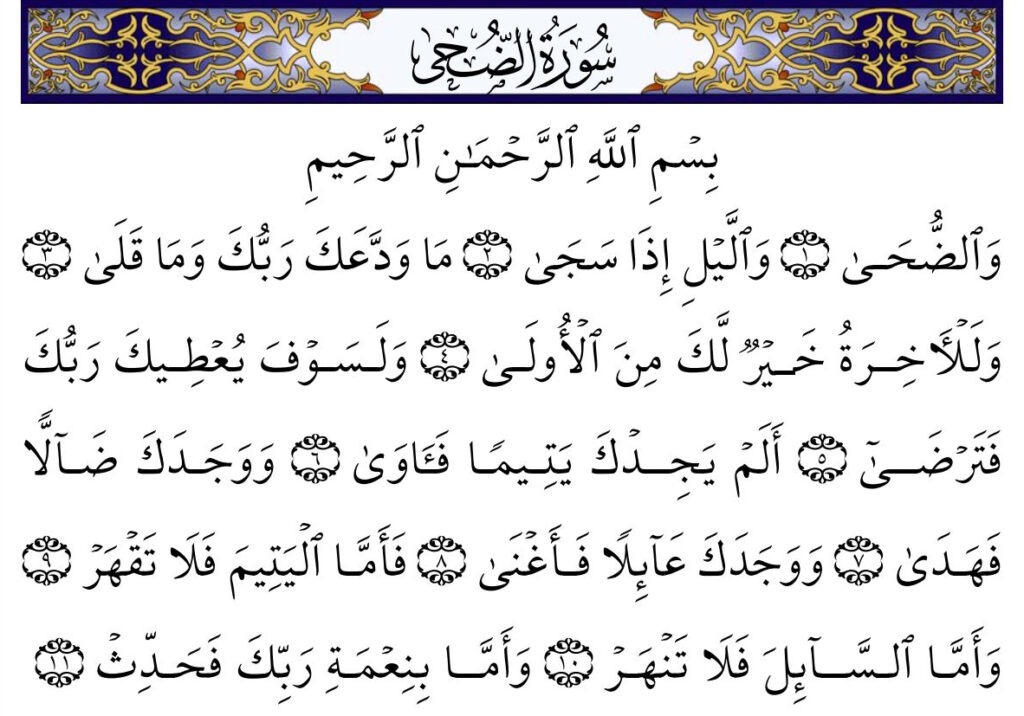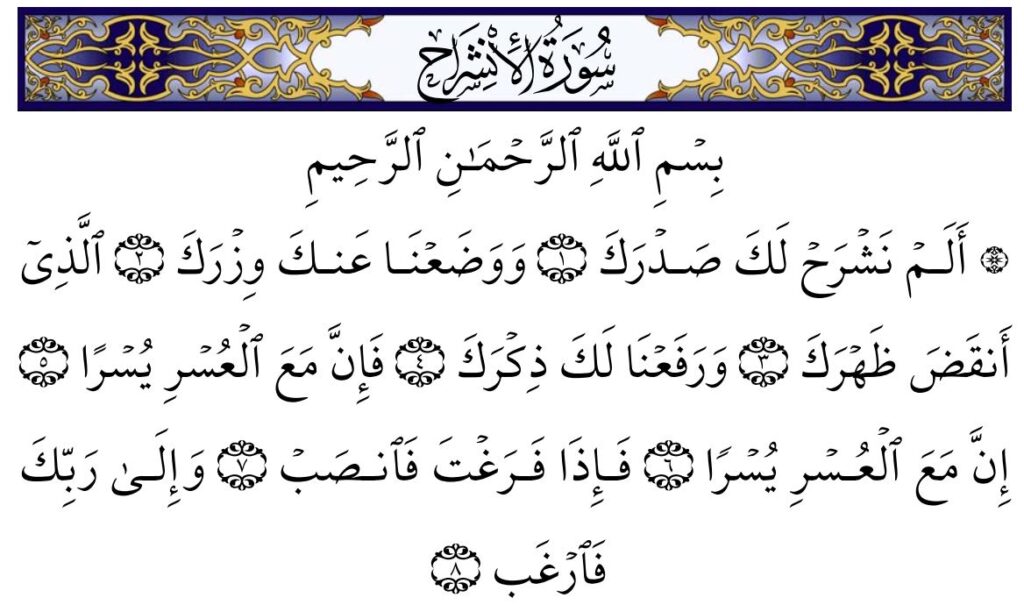
Dua in times of Distress in Arabic and English
The Messenger of Allah (ﷺ) said to me: May I not teach you phrases which you utter in distress? (These are:)
“Allah, Allahu Rabbee La ushriku bihee Shay’aa”
“Allah, Allah is my Lord, I do not associate anything as a partner with Him.” AbuDawud:1525

The Explanation of Dua in times of Distress
In this Hadith, the Messenger of Allah ﷺ said: “If any of you is sad or in troubled” meaning he is sad because of some trouble, then he should say: “Allah, Allah”
“Allah, Allahu”
As a noun, “Allah” possesses all the basic, aesthetic and perfect attributes. Whenever you are in distress, remember Allah’s greatness and monotheism, and repeat the word (Allah).
“Rabbi”
“He is my Lord” He is my Lord. who created me I was nothing. granting me success through His Oneness and remembrance, the one that educates me with His immense blessings, and the one that owns all my affairs.
“Laa ushriku bihi shaiya”
“ I associate nothing with Him,” that is, there is no one with Him who shares His perfection and majesty, creation, beauty, and servitude. All Profits or Losses are Caused by Allah. He is the owner of everything.
Reciting this dua relieves worry, grief, and distress if the intention is sincere. Hence, the dua discusses two things: Tawheed (monotheism) and Shirk (polytheism)
Tawheem
Tawheed is the greatest cause of open-heartedness, and as it grows in strength, depth, and completeness, a person’s heart will open. Allah says:
So is one whose breast Allah has expanded to [accept] Islam and he is upon a light from his Lord [like one whose heart rejects it]?
Shirk (Polytheism)
Shirk and Misguide is the greatest cause of close-heartedness.
and whoever He wants to misguide – He makes his breast tight and constricted
Which Surah is for distress?
As I heard from scholars and read in books, the following verses, and Surahs are important to recite in times of distress and difficulty. The commentary of the following verses is much closer to the distress and difficult situation. So reciting these verses can be beneficial for anyone who is in trouble and distress.
1 - The Last Two Verses of Surat Al-Tawbah

The last two verses of Surat al-Tawbah. Due to the fact that the servant confesses that Allah is sufficient for all my needs and expresses confidence in Him.
Moreover, in this verse, it is also stated that everything that causes trouble and death to Muslims is very heavy on Prophet Muhammad’s hearts. The Prophet (peace be upon him) wants to see you protected from the dangers and troubles of both this world and the hereafter as well as blessed with the blessings of both.
The Messenger of Allah (ﷺ) wishes all goodness, virtue, and good things to be bestowed upon you by Allah Ta’ala. These are very important and beneficial in times of trouble and distress. because in these verses a person
2 - Prophet Ayub's (Alaihisslam) Dua
۞ وَأَيُّوبَ إِذْ نَادَىٰ رَبَّهُۥٓ أَنِّى مَسَّنِىَ ٱلضُّرُّ وَأَنتَ أَرْحَمُ ٱلرَّٰحِمِينَ ٨٣
And ˹remember˺, when Job cried out to his Lord, “I have been touched with adversity, and You, are the Most Merciful of the merciful.” (Al-Anbiya:83)
Ayyub (peace be upon him) is a Jalil-ul-Qadr (great) prophet and in the Quran, he (peace be upon him) is called Sabir. Allah Subhanahu Wa-Ta’ala tested him through severe diseases, but he remained patient and grateful in all situations. This is the reason that “The patience of Ayub” has become a proverb.
3 - Surah Duhaa

When the blessed finger of the Prophet (peace and blessings of Allah be upon him) was injured, and many days passed without revelation, the Prophet (peace and blessings of Allah be upon him) became worried. In addition, people started taunting Muhammad that his Lord had abandoned him.
Then Allah revealed this surah. And he said that “Your Lord ˹O Prophet˺ has not abandoned you, nor has He become hateful ˹of you˺.”
After that, Allah Subhanahu Wa-Ta’ala mentioned three blessings:
Did He not find you as an orphan then sheltered you?
Did He not find you unguided then guided you?
And did He not find you needy then satisfied your needs?
4 - Surah Alam Nashrah

In this Surah, Allah Ta’ala mentions that We have opened your chest and lifted your burden, and raised your remembrance. Afterward, Allah said, if difficulties and troubles come upon you, don’t worry about them, there will be ease after them. Just you have to stay patient and pray to Allah after you finish your duty to the people.
The lesson that we learned from these two surahs is that we should pay attention to what Allah has blessed us with in spite of all our imperfections. So stop focussing on how stressed you are and remember how blessed you are.
So, surely with hardship comes ease. Surely with ˹that˺ hardship comes ˹more˺ ease. Alam Nashrah:5,6
How do Muslims relieve stress?
When faced with any difficult situation, people tend to revert to their favorite rituals and most trustable behaviors. This is especially true in times of distress, as these routines often provide a sense of solace and support.
In panic situations, non-believers behave differently from believers. They have no one to turn to, to ask for mercy and forgiveness, they know and believe not in any life other than this worldly life, over which they have no control. Naturally, they get more depressed which in turn leads them to even more wrongdoing. If they were used to casual drinking, after drinking, they will increase their consumption of alcohol and end up as alcoholics or habitual criminals.
Dr. Shahid Athar – Clinical Associate Professor at Indiana University
In a state of depression a believer, on the other hand, is advised to do the following:
1 - Remembrance of Allah
Allah Subhanahu wa-Ta’la said: أَلَا بِذِكْرِ ٱللَّهِ تَطْمَئِنُّ ٱلْقُلُوبُ Surely in the remembrance of Allah do hearts find comfort. So for Muslims, the remembrance of Allah is a great way to relieve stress and anxiety as the Quran states.
2 - Seeking Help through patience and prayer
or any distress, trouble, and anxiety Muslims seek help through patience and prayer as Quran stated that “O believers! Seek comfort in patience and prayer. Allah is truly with those who are patient.”
3 - Reciting or Listening to The Quran
We send down the Quran as a healing and mercy for the believers, but it only increases the wrongdoers in loss. Surah Isra
4 - Asking for forgiveness from Allah
Seeking forgiveness is a cause of blessing. As Quran states in Surah Nouh that when the prophet Nouh said, ‘Seek your Lord’s forgiveness, ˹for˺ He is truly Most Forgiving. He will shower you with abundant rain, supply you with wealth and children, and give you gardens as well as rivers.
5 - Remaining Steadfast
“Surely those who say, “Our Lord is Allah,” and then remain steadfast, the angels descend upon them, ˹saying,˺ “Do not fear, nor grieve. Rather, rejoice in the good news of Paradise, which you have been promised.”
6 - Change yourself
If you rely on recitation, supplication, and Wazifa without stopping from sins, you will not be able to escape your distress through it. Unless you change your actions and adopt good habits, Allah will not change your state. As maintained in the Quran: “If one just make Indeed, Allah would never change a people’s state ˹of favour˺ until they change their own state ˹of faith˺.
7 - Supplication from Hadith
The Messenger of Allah (ﷺ) taught his Companions piety, good behavior, and how to pray to God in all situations.
“O Allah! I seek refuge with You from worry and grief, from incapacity and laziness, from cowardice and miserliness, from being heavily in debt, and from being overpowered by (other) men.” Bukhari:6369
Visit our Blog page for more articles
Share this article on Social Media. Thank You!

